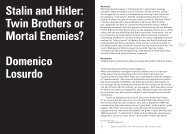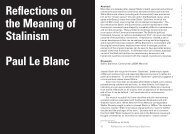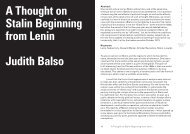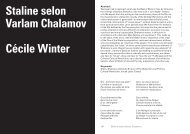Sally Sedgwick, 23 Robert Stern, 24 Kenneth Westphal, 25 myself, 26 andŽižek too. Despite differences amidst the multiple advocates of variousflavors of deflated Hegelianism—there have been direct, detaileddebates between some of them 27 —they share in common, as Beiserlucidly explains in language borrowed from none other than KarlMarx, the conviction that the “rational kernel” of Hegel’s investmentsin Kantian transcendentalism and/or socio-historical angles ofphilosophical approach should be salvaged from the “mystical shell”of his more ambitious global ontology, especially as embodied by hisRealphilosophie of nature 28 (i.e., those aspects of Hegel’s musingsthat appear to veer into [neo-]Platonic and/or Romantic visions of ametaphysically real God-like Notion as a kind of cosmic super-organismor Mega-Mind). Pippin, over the course of his own intellectual itinerary,has shifted his attention and focus between the two basic poles of thedeflationist spectrum, from an early emphasis on Hegel’s fidelity toKant’s transcendental idealism (as per his groundbreaking, now-classic1989 study Hegel’s Idealism: The Satisfactions of Self-Consciousness)to a later highlighting of the social and historical dimensions ofthe Hegelian edifice (as per such texts as 2008’s Hegel’s PracticalPhilosophy: Rational Agency as Ethical Life and 2011’s Hegel on Self-Consciousness: Desire and Death in the Phenomenology of Spirit,texts in which Hegel seems to be presented as being a social rationalitypragmatist of a Brandomian inferentialist kind avant la lettre—withthis presentation being made possible by Pippin’s underlying [over]emphasis on the theme of apperception in Hegel).Quite appropriately in a chapter (the fourth) of Less ThanNothing entitled “Is It Still Possible to Be a Hegelian Today?,” Žižektargets deflated Hegelianism à la Pippin (along with mention of thepost-Sellarsian Pittsburgh neo-Hegelianism of Brandom and JohnMcDowell). 29 His remarks in this vein are worth quoting:23 Sedgwick 2012, pp. 9-11, 62, 96, 125-126.CRISIS&CRITIQUE#3If… in ontological terms, spirit naturally evolves as a capacity ofnatural beings, why not simply endorse materialist evolutionism?That is to say, if—to quote Pippin—‘at a certain level of complexityand organization, natural organisms come to be occupied withthemselves and eventually to understand themselves,’ does thisnot mean that, precisely in a certain sense nature itself does‘develop into spirit?’ What one should render problematic isprecisely Pippin’s fragile balance between ontological materialismand epistemological transcendental idealism: he rejects thedirectidealist ontologization of the transcendental account ofintelligibility,but he also rejects the epistemological consequences of theontological evolutionary materialism. (In other words, he doesnot accept that the self-reflection of knowledge should constructa kind of bridge to materialist ontology, accounting for how thenormative attitude of ‘accounting for’ itself could have emergedout of nature.) 30On the next page, Žižek proceeds to argue:…the point is not that one should take sides and opt for oneconsistent stance, either evolutionary materialism or speculativeidealism. The point is rather that one should fully and explicitlyaccept the gap which manifests itself in the incompatibility ofthe two stances: the transcendental standpoint is in a senseirreducible, for one cannot look ‘objectively’ at oneself and locateoneself in reality; and the task is to think this impossibility itselfas an ontological fact, not only as an epistemological limitation.In other words, the task is to think this impossibility not as a limit,but as a positive fact—and this, perhaps, is what at his mostradical Hegel does. 31CRISIS&CRITIQUE#324 Stern 2009a, pp. 1-41; Stern 2009b, pp. 45-76.25 Westphal 1993, pp. 263-272.26 Johnston 2012, pp. 103-157; Johnston 2014a, pp. 13-64; Johnston 2014c.This Hegel, “at his most radical,” is the Žižekian one in whose“parallax view” apparent gaps in knowledge (maintained as merelyepistemological by Kantianism, including by Pippin’s Kantianized27 Pinkard 1989, pp. 5-17; Pinkard 1990, pp. 831-838; Pippin 1989a, pp. 28-41; Pippin 1990, pp. 839-848; Pippin 1993, pp. 285-295; Sedgwick 1993, pp. 273-283.28 Beiser 2002, pp. 508-511.30 Žižek 2012, p. 238.29 Žižek 2012, p. 237.31 Žižek 2012, p. 239.376 “Where to Start?: Robert Pippin, Slavoj Žižek...377“Where to Start?: Robert Pippin, Slavoj Žižek...
Hegel-as-transcendental-idealist) reappear as real gaps in beingqua being an und für sich. 32 This involves the transition from Kantto Hegel being portrayed as a matter of a shift from the positing ofbreaks exclusively at the level of epistemology (Kant) to the assertionof these very same breaks (also) at the level of ontology (Hegel). 33 ForŽižek, the proper Hegelian gesture to be performed vis-à-vis Pippin’sallegedly inconsistent position with respect to the split between theseemingly incommensurable ontological options of “either evolutionarymaterialism or speculative idealism” is not to force a decision oneway or the other according to the taken-for-granted parameters of thisbinary opposition. Instead, the Žižekian Hegel both, one, eschews theKantian inclination to shield the noumenal Real of Sein an sich fromthe rifts and ruptures phenomenally manifesting themselves within thecognizing subject’s knowing as well as, two, treats the apparent choicebetween the first-person perspective of idealism and the third-personperspective of materialism as a false dilemma—with the consequencethat the appearance of discrepancy between these perspectivesis not just that, namely, a mere appearance as an epistemologicalepiphenomenon deprived of any ontological status and weight.Elsewhere in Less Than Nothing, Žižek makes this same set of moveswith respect to the division within the Marxist tradition between its twofundamental approaches to theorizing human beings: The gap betweenthe “social” à la historical materialism and the “natural” à la dialecticalmaterialism is not to be closed in favor of one approach over the otherbut, rather, to be affirmed as directly reflecting a gap really perturbingfrom within the substance of humanity’s very being itself. 34 Moreover,as a close reading of the early moments of Less Than Nothing readilymakes evident, the topic of appearance, featuring centrally in Žižek’scritical handling of Pippin, is one of the most important red threadstying together the entirety of his hulking 2012 philosophical masterpiece.Herein, I want to push the critique of Pippin’s deflationary Hegelianismfurther and, in so doing, address both Pippin’s and Žižek’s conceptionsof where, when, and how Hegel’s Logic actually begins (an issue I raiseda short while ago here).Pippin hangs an enormous amount of interpretive weight on oneCRISIS&CRITIQUE#3single passage in particular from “The Doctrine of the Concept” in theScience of Logic 35 (Brandom likewise highlights this same passage 36 ).Arguably, Pippin’s overarching Kantianization of Hegel’s philosophy asa whole, in addition to his reading of the Logic specifically, hinges onthis particular stretch of text as its Archimedean point. Preliminarilyaddressing “the concept in general” at the start of the “SubjectiveLogic” formed by the third book of the Science of Logic, Hegel declaresat great length:It is one of the profoundest and truest insights to be found in theCritique of Pure Reason that the unity (Einheit) which constitutesthe nature of the Notion (das Wesen des Begriffs) is recognizedas the original synthetic unity of apperception (die ursprünglichsynthetischeEinheit der Apperzeption), as unity of the I think,or of self-consciousness. This proposition constitutes the socalledtranscendental deduction of the categories; but this hasalways been regarded as one of the most difficult parts of theKantian philosophy, doubtless for no other reason than that itdemands that we should go beyond the mere representation(die bloße Vorstellung) of the relation in which the I stands tothe understanding, or notions (Begriffe) stand to a thing and itsproperties and accidents, and advance to the thought (Gedanken)of that relation. An object, says Kant, is that in the notion of whichthe manifold of a given intuition is unified. But all unifying ofrepresentations demands a unity of consciousness in thesynthesisof them. Consequently it is this unity of consciousness whichalone constitutes the connection of the representations with theobject and therewith their objective validity and on which restseven the possibility of the understanding. Kant distinguishes thisunity from the subjective unity of consciousness (die subjektiveEinheit des Bewußtseins), the unity of representation whereby Iam conscious of a manifold as either simultaneous or successive,this being dependent on empirical conditions. On the other hand,the principles of the objective determination of notions (objectivenBestimmung der Vorstellungen) are, he says, to be derived solelyfrom the principle of the transcendental unity of apperception (derCRISIS&CRITIQUE#332 Johnston 2008, pp. 155, 162-163, 179, 209, 236, 241, 245-246, 263-265, 275; Johnston 2014a, pp.111-138.33 Johnston 2014b.35 Pippin 1989b, pp. 17-18, 35, 232; Pippin 1989a, pp. 30-31; Pippin 1990, p. 843; Pippin 1993, p.288; Pippin 1997, p. 131; Pippin 2005, pp. 47-52; Pippin 2011, p. 10; Ameriks 1991, p. 400.34 Žižek 2012, pp. 393-394.36 Brandom 2002, pp. 53-54, 216-217.378 “Where to Start?: Robert Pippin, Slavoj Žižek...379“Where to Start?: Robert Pippin, Slavoj Žižek...






